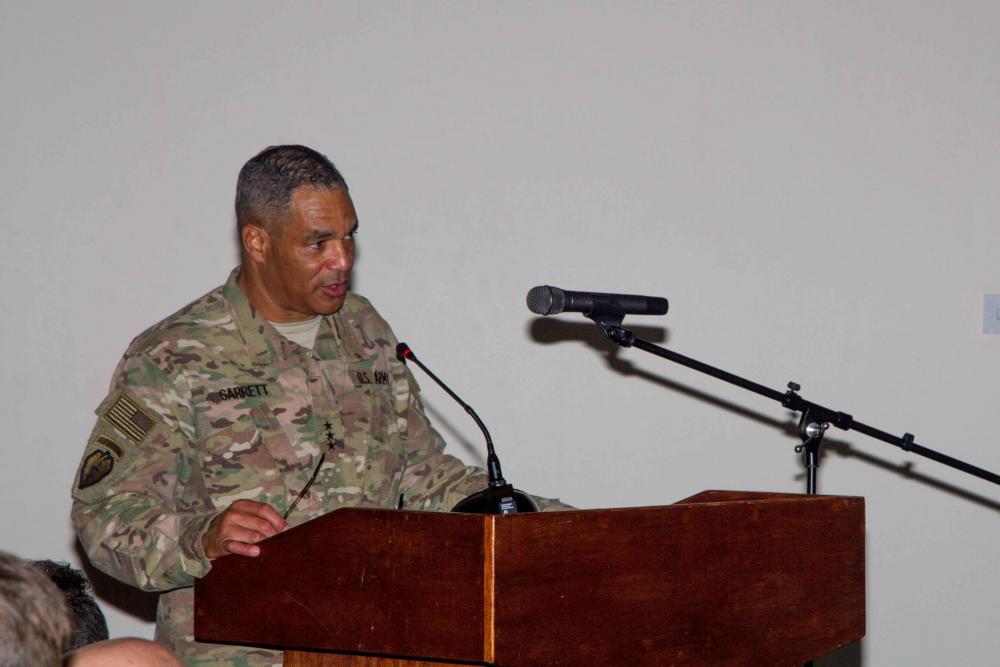
Mahmoud Hegazy, Egypt’s army chief of staff, headed to London on Wednesday in his second official visit to UK within two months.
Hegazy was accompanied by army military officials, according to an official security source, speaking on condition of anonymity as he had no authority to speak to media.
Reasons behind the visit are yet to be announced.
Last January, Hegazi visited London for talks with British army leaders on bolstering Egyptian-British military cooperation as well as discussing the region’s security and stability challenges, as stated the Egyptian Armed Forces.
The visit is also considered the third in two years, as the army chief traveled to London in an official visit in September 2015, where he had talks on military and security cooperation with senior British officials.
Also, early this month Hegazy met with the British deputy chief of the defense staff, Mark Carleton-Smith, who headed a delegation to Egypt.
The meeting also discussed a joint cooperation in the military field between the two countries, in light of the terrorism challenging the region, a statement by the army spokesperson read.
Egypt and the United Kingdom concluded a joint naval exercise last October in Alexandria as part of the two countries’ wider defense partnership.
In fact, UK Defense Secretary Michael Fallon, pledged that UK will expand military training support to Egypt’s Armed Forces during his visit to Egypt last September.
Fallon said that Cairo is a key partner and that the two countries will continue to work together to fight terrorism and achieve security and stability in the region, according to Sputnik.
Moreover, Fallon praised the “vital training” which he said had helped Egyptian Armed Forces to defuse dangerous devices as they tackle the threat from our common enemy – terrorism.”
He said, “We are now going to step up co-operation with our Egyptian allies to help them increase training capacity in their Armed Forces.”
Britain has trained more than 80 EAF personnel in countering improvised explosive devices and close protection in the United Kingdom in 2015-2016, and under the new pledge the country will extend training to hundreds of Egyptian army personnel.
Fallon also highlighted the arms trading relationship between the two countries.
He said, “Egypt is a key partner, and we will continue to work together to achieve security and stability in this region.”
It is worth to mention that the Europe’s security relations with al-Sisi military regime have been criticized by international rights group as they continue to support Egypt’s military regime despite the massive crackdown on human rights.
In May 2016, Amnesty International report condemned the widespread use of British troops to train the security forces of regimes which – like Egypt – feature on the UK’s own human rights watch lists.
The report said that despite the EU suspension on arms transfers to Egypt, almost half of European Union (EU) member states have violated the sanctions.
The report reads,” After hundreds of protesters were killed in a show of grossly excessive force by security forces in August 2013, 12 out of 28 EU member states have remained among Egypt’s main suppliers of arms and policing equipment. It is feared that EU Foreign Ministers could soon decide to scrap the current, already insufficient, suspension.”
According to Amnesty’s report, EU states authorized 290 licenses for military equipment to Egypt, totaling more than €6 billion (US$6.77) in 2014 alone. The items have included: small arms, light weapons and ammunition; armored vehicles; military helicopters; heavier weapons for use in counter-terrorism and military operations; and surveillance technology.
The EU countries who have been supplying arms to Egypt through exports or brokering since 2013 are: Bulgaria, Cyprus, Czech Republic, France, Germany, Hungary, Italy, Poland, Romania, Slovakia, Spain and the UK.
According to Privacy International, the Egyptian authorities were also supplied by companies from several EU countries, including Germany, Italy and UK, with sophisticated equipment or technologies destined for use in state surveillance, which Amnesty International fears may be used to suppress peaceful dissent and violate the right to privacy.
In the same context, the Huffington Post(UK edition)has published an article that criticized Britain and the extraordinary relationship with the military ruler of Egypt saying that UK’s new relationship with the autocratic military government in Egypt is worrying.
Since the military coup led by General Abdel Fattah al-Sisi against Egypt’s first democratically elected president Mohamed Morsi in July 2013, “Egypt has once again become a nasty, repressive regime,” said the Huffington Post.
The military regime has launched a massive crackdown against human rights: torture, deaths in detention, forced disappearances, restrictions on civil society, the imprisonment of journalists and restrictions on freedom of expression.
Almost 40,000 Egyptians have been arrested by the regime since the military coup for opposing the regime and their participation in protests. During the first days of the coup between July and August, more than 1,000 people were killed” when the new regime conducted clearing operations to remove Muslim Brotherhood protesters from sit-ins in Cairo,” said the post.
But despite all these non-humanitarian policies adopted by the bloody coup, for Britain, “this all represents a new opportunity,” as both countries have enhanced the security and economic relations since al-Sisi reached power.
The UK has stressed multiple times that it is “committed to supporting a more secure, prosperous and democratic Egypt,” affirming its commitment to working with Egypt in tackling “shared challenges” such as terrorism.



